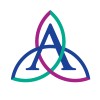
Effect of Dexmedetomedine in Subtenon's Block on Emergence Agitation in Pediatric Strabismus Surgery...
Emergence AgitationThe study is conducted to evaluate the effects of dexmedetomedine in subtenon's block in conjunction to general anesthesia under sevoflurane anesthesia on emergence agitation, intraoperative hemodynamic stability, postoperative pain, nausea and vomiting in patients undergoing strabismus surgery.

Quetiapine Versus Haloperidol in the Management of Hyperactive Delirium
Hyperactive DeliriumIn population of intensive care unit (ICU), most studies compared atypical antipsychotics such as quetiapine with the traditional haloperidol in delirious patients of various forms and etiologies. The role of such agents in patients with hyperactive is not fully understood. This study compares the effectiveness of quetiapine with haloperidol in treating the hyperactive form of delirium in terms of their effects on morbidity, length of stay in the intensive care unit, and mortality in critically ill patients.

Noninvasive Peripheral Nerve Stimulation for Medication-Refractory Primary RLS (The RESTFUL Study)...
Restless Legs SyndromeMulti-center, prospective double-blind randomized controlled pivotal study of noninvasive peripheral nerve stimulation (NPNS) with the NTX100 Neuromodulation System for patients with medication-refractory moderate-severe primary RLS

Phase IV to Evaluate the Safety of Self-administered ADASUVE® in Agitated Patients Outside the Hospital...
AgitationPhase IV, multinational, multicentre, open-label, non-randomized, clinical trial conducted in Europe (Spain, Germany, Finland, Norway, Romania and Austria) to evaluate the safety profile of ADASUVE® in agitated patients with schizophrenia or bipolar disorder when self-administered outside of a hospital setting without the supervision of a healthcare professional. The Study will aim to include approximately 500 patients who have been previously treated with ADASUVE® in the last 6 months prior to screening or recently treated during the planned recruitment period of 6 months with a 'positive outcome' ('ADASUVE® responder') according to Clinical Global Impressions (CGI-I) scale, from a total of about 30-34 centers. All patients will be followed up for a maximum of 6 months from baseline, during which it is expected that a new episode of agitation will occur.

Randomised Trial Ketiapine Olanzapine Fast Sedation Agitated Patients Emergency Ward
Psychomotor AgitationPsychiatric Disorder2 morecomparison of intramuscular olanzapine and ketamine efficacy as first medication for fast sedation of patients with agitation and aggressive behavior. Five hundred patients with agitation caused by psychiatric disorder were randomly assigned under double-blind conditions to receive olanzapine or ketiapine. The Overt Agitation Severity Scale, Overt Aggression Scale and Ramsay Sedation Scale will be applied within 12 hours after the first dosage.

Study to Investigate Pharmacokinetics (PK) of Pramipexole in Pediatric Patients Who Are Individually...
Restless Legs SyndromeStudy to determine the pharmacokinetics (PK) of pramipexole (PPX) after administration of a single dose orally (p.o.) in pediatric patients with the diagnosis of RLS

Efficacy of Tyrosine in Restless Legs Syndrome
Restless Legs Syndrome (RLS)Tyrosine is a non essential amino acid that is the precursor of the neurotransmitter, dopamine. Tyrosine is converted into Levodihydrophenylalanine (L-Dopa) and L-Dopa is subsequently and avidly converted into dopamine. It is well known that dopamine deficiency leads to the manifestations of restless legs syndrome (RLS). Studies have shown dopamine agonists and L-dopa to be effective in controlling symptoms. No studies to date have been done to determine the role of tyrosine in RLS. This open-label pilot study aims to determine the efficacy and tolerability of tyrosine in RLS, as current agents have limitations in treating RLS in addition to adding another possible agent to the investigators arsenal of treating RLS that maybe more cost efficient. In this pilot study, the dose of tyrosine will be escalated from 750 mg once daily by mouth (PO) up to 3000 mg once daily PO, as tolerated, in increments of 750 mg every week in patients who meet the inclusion criteria for RLS. Patients' symptoms will be monitored on a weekly basis for six weeks.

Gabapentin Enacarbil (GSK1838262) Adult Restless Leg Syndrome (RLS) Post Marketing Commitment Study...
Restless Legs SyndromeGabapentin enacarbil (GEn; GSK1838262; HORIZANT), at a dose of 600 mg/day, is currently approved in the United States for the treatment of adults with moderate-to-severe primary Restless Legs Syndrome (RLS). The aim of this study is to compare the efficacy, tolerability, and safety of GEn at lower doses (450 and 300 mg/day) as well as the already approved dose of 600 mg/day versus placebo for the treatment of subjects with moderate to severe primary RLS. This study is being conducted as a post-marketing commitment (PMC) as a condition of the approval of HORIZANT tablets (NDA 022399).

Efficacy and Safety of Risperidone Oral Solution Combination Clonazepam Versus Haloperidol Intramuscular...
SchizophreniaThis is a multi-centre, open, randomized, haloperidol-referenced, 47 days two treatment sessions, parallel-group study. After screening period, eligible subjects will be entered 5 days treatment session I to compare the efficacy between risperidone oral solution combination clonazepam oral and haloperidol IM injection on controlling psychotic agitation, then will be followed by 6 additional weeks treatment session II for exploring the effect of medicine switching from IM injection to oral.

Liquid Risperidone in the Treatment of Acute Agitation in Psychiatrically Hospitalized Children...
AgitationThe goal of this study is to demonstrate safety and efficacy of liquid risperidone in psychiatrically hospitalized children, ages 4-12, who would be put in seclusion or restraint, or given an intramuscular injection of diphenhydramine because of their out-of-control behavior if not medicated with risperidone. The first part of the study will: 1) develop appropriate oral doses of medication to reduce out of control or agitated behavior effectively with the fewest side effects, and 2) develop a rating system to measure the children's behavior i.e. level of improvement, sedation, and untoward effects.
